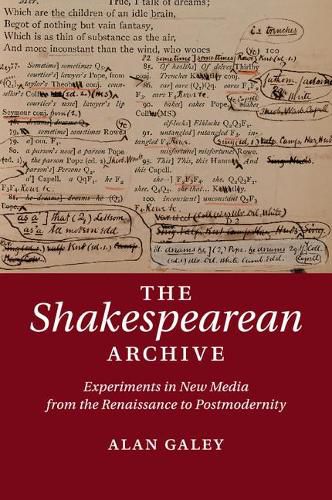Readings Newsletter
Become a Readings Member to make your shopping experience even easier.
Sign in or sign up for free!
You’re not far away from qualifying for FREE standard shipping within Australia
You’ve qualified for FREE standard shipping within Australia
The cart is loading…






Why is Shakespeare so often associated with information technologies and with the idea of archiving itself? Alan Galey explores this question through the entwined histories of Shakespearean texts and archival technologies over the past four centuries. In chapters dealing with the archive, the book, photography, sound, information, and data, Galey analyzes how Shakespeare became prototypical material for publishing experiments, and new media projects, as well as for theories of archiving and computing. Analyzing examples of the Shakespearean archive from the seventeenth century to today, he takes an original approach to Shakespeare and new media that will be of interest to scholars of the digital humanities, Shakespeare studies, archives, and media history. Rejecting the idea that current forms of computing are the result of technical forces beyond the scope of humanist inquiry, this book instead offers a critical prehistory of digitization read through the afterlives of Shakespeare’s texts.
$9.00 standard shipping within Australia
FREE standard shipping within Australia for orders over $100.00
Express & International shipping calculated at checkout
Why is Shakespeare so often associated with information technologies and with the idea of archiving itself? Alan Galey explores this question through the entwined histories of Shakespearean texts and archival technologies over the past four centuries. In chapters dealing with the archive, the book, photography, sound, information, and data, Galey analyzes how Shakespeare became prototypical material for publishing experiments, and new media projects, as well as for theories of archiving and computing. Analyzing examples of the Shakespearean archive from the seventeenth century to today, he takes an original approach to Shakespeare and new media that will be of interest to scholars of the digital humanities, Shakespeare studies, archives, and media history. Rejecting the idea that current forms of computing are the result of technical forces beyond the scope of humanist inquiry, this book instead offers a critical prehistory of digitization read through the afterlives of Shakespeare’s texts.